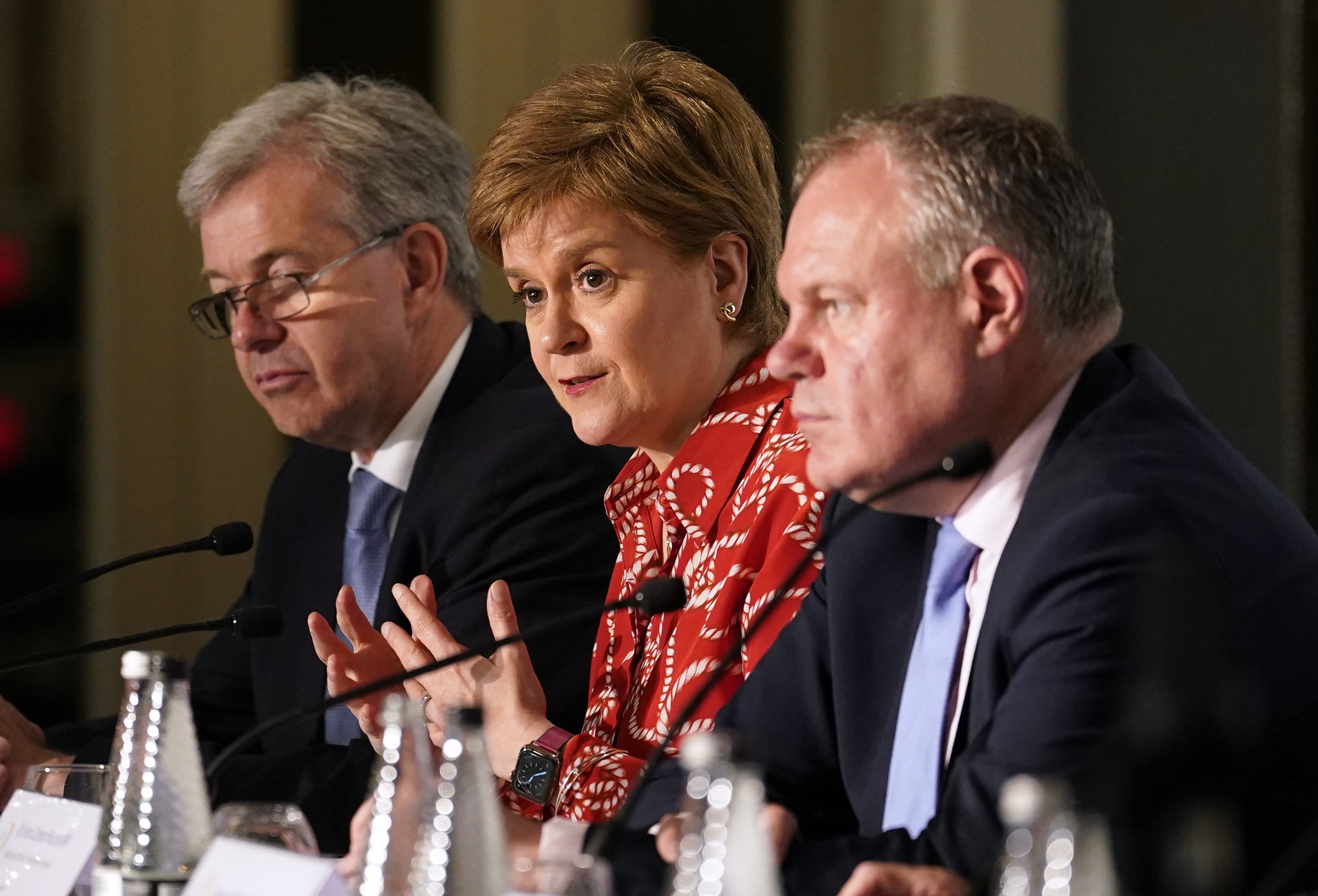Nicola Sturgeon: Independent Scotland would remain in British-Irish Council
The Scottish First Minister was speaking at the 37th British-Irish Council summit in Guernsey on Friday.

Nicola Sturgeon has said Scotland would remain in the British-Irish Council if the country voted for independence.
The First Minister was speaking a press conference following the 37th summit held in Guernsey on Friday when she claimed a vote for independence would not come at the sacrifice of good relations with other nations in the British Isles.
“An independent Scotland would still be part of the British Isles and therefore, very much a part of the British-Irish Council,” she told journalists.
“I want to use this forum as a way to illustrate the continuing relationships that will be strong and valued and valuable when Scotland becomes an independent country.
“The only thing that will change is Scotland will no longer be a devolved Government around the table, we will be an independent Government.”
Ms Sturgeon said Scotland would always remain part of a “family of nations”.
The SNP leader took in several meetings in the morning with other heads of state, including the First Minister of Wales, chief ministers of Guernsey, Jersey and the Isle of Wight, and the Irish Taoiseach.
On the agenda was the cost-of-living crisis, climate change, support for the people of Ukraine, and the Northern Ireland Protocol, as well as urban planning to regenerate towns.
Ms Sturgeon and the other delegates said that while there was some acknowledgement of what Boris Johnson’s resignation would mean for their respective nations, the events in Westminster did not overshadow the summit.
Giving her thoughts on the situation, which ultimately led to the Prime Minister agreeing to step down on Thursday, Ms Sturgeon said: “I’m obviously only speaking personally here but I would hope that a new prime minister does lead to a reset on some of the discussions around the Northern Ireland protocol, and to some of the wider discussions around Brexit.
“I hope that notwithstanding developments in recent days, and the necessary process now to elect a new leader of the Conservative Party, the new prime minister, we don’t see an interruption of necessary steps to help with the cost of living, which becomes ever more pressing by the day.
“It’s no secret that Boris Johnson was not an overwhelmingly popular prime minister in Scotland, I think that’s probably the most diplomatic way I can say it. So there will be, you know, a sense of relief that that is changing,” she added.
“Boris Johnson is a prime minister that Scotland did not vote for about to be replaced by another prime minister that Scotland did not vote for, and the democratic deficit issue that comes with Westminster Government for Scotland is systemic and it is about more than one individual prime minister.”
Ms Sturgeon’s Welsh counterpart, Mark Drakeford, used the moment to repeat his call for a general election, saying he believes the decision should be put “into the hands of the people to whom we are all responsible” so that the next government has a clear mandate.